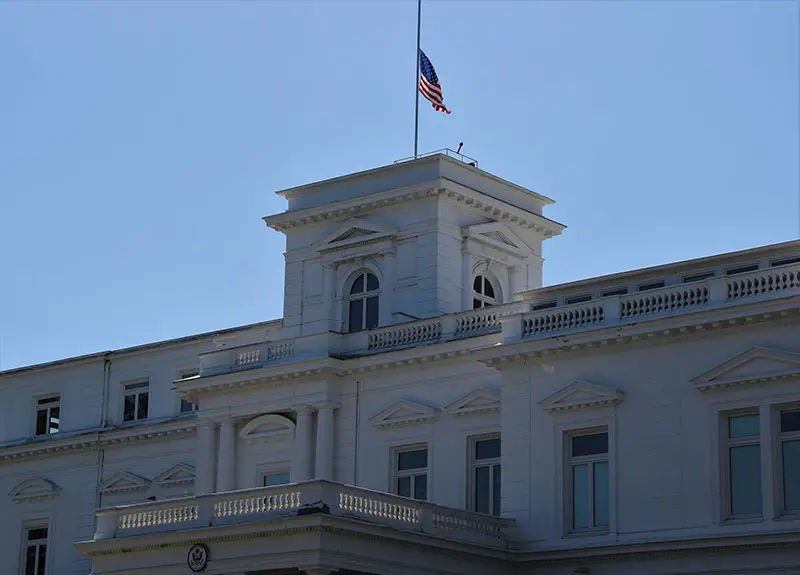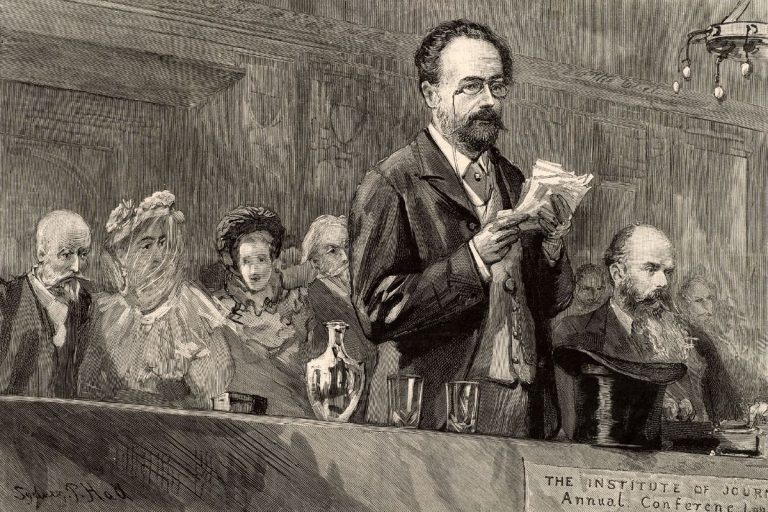What’s the Difference Between Embassy and Consulate?
Are you looking for a visa to visit a foreign country? Do you know where to get such services between an embassy and a consulate? Have you had issues directing a fellow citizen on where to report a crisis in a foreign country between a consulate and an embassy? Like in any other field, these are the two common organizations in the foreign policy arena, that many people find hard to differentiate.
An embassy is an organization offering the primary diplomatic representation of one country in another country (in general in the capital city).
A consulate is a smaller diplomatic organization or simply a branch of the embassy, usually located outside the main city of the receiving country.
Luckily for you, I have prepared an in-depth comparison of these diplomatic bodies such that it will be effortless to differentiate them.
Let’s have a closer look at each organization such that it will be easy to compare them.
Embassy
Definition
The embassy is the central location where main, between state affairs, are discussed. This organization forms the central working place of the ambassador, a representative of one country in another.
The ambassador should work closely with the ministry of foreign affairs of the host country. An embassy is located in the receiving country’s capital city to make sure that all citizens of that country can easily access its services.
Services offered
The services that an embassy can provide to its nationals and the locals differ by country.
Most embassies, however, handle sensitive matters like war or emergency issues and trade. In this regard, it is advisable to consult an embassy on the steps to take when local or international conflicts arise.
Embassies also offer other services, including:
- Handling of travel issues such as delays, lost luggage and issuance of visas.
- Validation of documents such as birth certificate that you may require in the visiting country.
- Provision of contacts of the best medical professionals when you fall ill in a foreign country.
- Advice on the lawyers to consult when you are arrested in a foreign country.
Obligations
As stated above, an embassy should inform the host country through the ministry of foreign affairs how the represented country’s nationals are to be treated by the receiving country.
In the same spirit, the embassy is obliged to inform its government about all political, social and economic happenings affecting its nationals. If need arises, the embassy can also inspect military partnership between the two countries.
The embassy also should arrange official visits, especially those involving their head of state.
The embassy also prepares treaties to be signed by the two countries.
The embassy is also required to promote the culture of its country by organizing famous cultural festivals.
An ambassador is the spokesperson of the home country and is obliged to report to the home president.
Legal distinction
Since diplomats run embassies, many countries exempt harsh law consequences for minor crimes committed in the host country.
In many cases, diplomats are not arrested or jailed under the laws of the receiving state. Many countries do this to protect the very crucial information that diplomats in embassies handle.
Consulate
Definition
A consulate is a representation of a country in another country’s large city.

Since some countries have some economically important cities but not necessarily the capital city, the extension of some of the embassy’s services is made possible through a consulate.
A consulate can, therefore, represent its country to the general population or to the business community. A consul general heads all the services that a consulate offers.
Functions
Since it is allowed to have more than one consulate representing one country in another country, the roles played by each consulate can be independent and unique from the other.
Some standard services offered by consulates are:
- Processing of visa applications for citizens of the host country willing to travel to the represented country.
- Taking care of tourists and migrants.
- Help their citizens renew official documents such as passports.
- Provision of lawyers to their citizens and follow up of court hearings to ensure that they are just.
Obligations
Consulates are obliged to report personal issues affecting their citizens, including births, marriages and deaths. Consulates should also report to their government the main events happening in the host country.
If a conflict arises in the host country, the consulate should inform its citizens and organize on how to rescue them if the worst strikes. The consulate is also required to offer care to their citizens in cases of detention or arrest in the host country.
Legal distinction
The consular officers working in a consulate have limited protection against laws governing the host country. This means that consular officers can be arrested and jailed on prosecution under those laws.
Consular officers must, therefore, take personal responsibility for their actions when performing consular duties.
Differences between an embassy and a consulate
Location
In most cases, the embassy is located in the capital city of the host country while a consulate can be found in any town or in any business center in the host country.
Multiple locations
There can only be one embassy representing one country in another while there may be several consulates representing a country in another.
Functions
The embassy focuses mainly on major diplomatic functions and some trade issues while a consulate focuses primarily on trade and commercial links.
Head of services
An ambassador heads an embassy while a consul general leads a consulate.
Major obligation
The embassy is obliged to maintain a stable diplomatic relationship between its home country and the host country while a consulate is required to handle its citizens’ welfare.
Conclusion
I hope the air is cleared after reading this comparison post and that now you know in detail how an embassy varies from a consulate.
While there are some differences in the services that embassies and consulates offer to local and foreign nationals, it is clear that consulates can also provide most of the services offered by embassies. It would be best to determine the organization near you when you have foreign issues that you need to solve.






